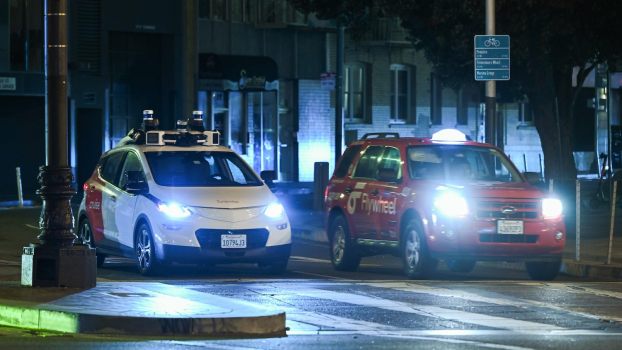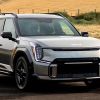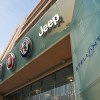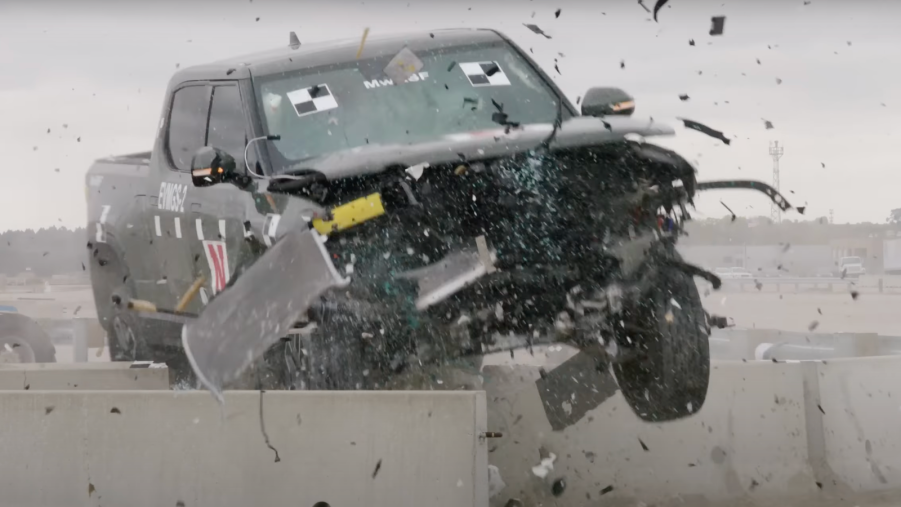
Watch 7,000-Pound Rivian Smash Through Guard Rail and Concrete Barrier
Who would total one of the hottest new EVs around? The engineers at the University of Nebraska’s Midwest Roadside Safety Facility are who. They wanted to know if our current safety systems are stout enough for the increased weight of EVs. See the test yourself in the video below:
The findings were disturbing. At just 60 mph the 7,000-pound truck tore through a metal guardrail as if it was made of paper. Then it tossed a concrete “Jersey barrier” aside like it was a charging bull. And the Rivian is far from the heaviest electric truck around.
The Rivian above is roughly the size of a midsize truck, but weighs as much as some heavier Ford Super Duties. The new Hummer EV weighs in at a mind-boggling 9,000 pounds. That’s a private car with the GVWR of a small school bus.
Why do these electric trucks weigh so much? Their battery packs. The lithium-ion battery set into that Hummer’s frame weighs 2,800 pounds. That’s right, the Hummer’s battery pack alone weighs as much as a Toyota Corolla.
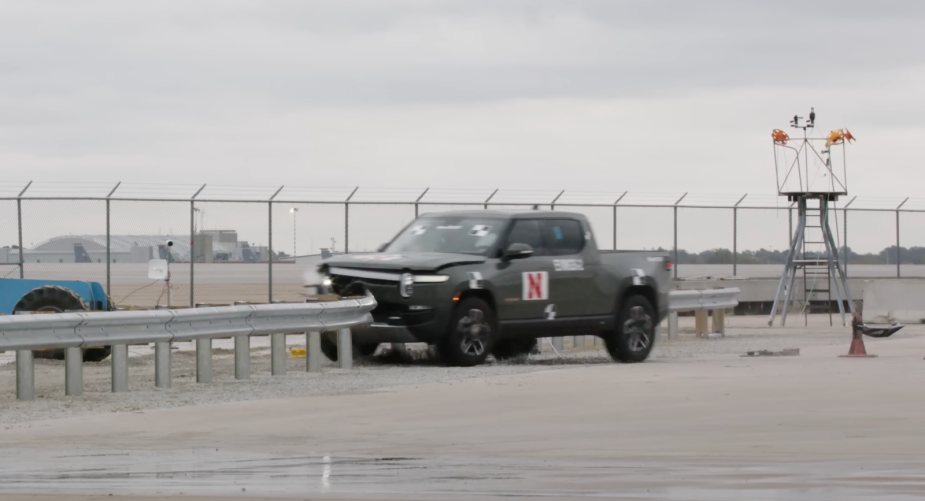
The truth is that lithium-ion batteries are heavy. That wasn’t a problem when they were just powering our laptops and cellphones. But to engineer an electric truck with any usable range, you need a massive battery. And the bigger the battery, the less efficient it is, and the bigger the battery needs to be. But EV cars pose serious safety risks too.
EV sedans also weigh more than their traditional counterparts. A Tesla Model S with a long range battery tips the scales at 4,700 pounds. That doesn’t make them the heaviest vehicles around. But unlike heavy pickup trucks, that Tesla carries almost all of its weight in its low-slung battery pack. And that in and of itself is a problem.
Last year the Army Corps of Engineers conducted its own test, flinging a Tesla Model S at a guard rail. The sedan went right under the guard rail, tossing the barrier into the air. That’s no good.
The EVs I’ve mentioned all have excellent crash test ratings. Their battery pack tends to absorb momentum and they do a good job protecting their passengers. But experts are understandably concerned about what they will do to the passengers of vehicles that weigh half as much, during a crash.
It will be interesting to see what happens first: whether the country redesigns and replaces our current guard rail system, or automakers develop a better battery chemistry and EVs get lighter.
Next, learn how Tesla refused to recall cars on autopilot killing first responders, or find out more of the questions that the EV guard rail test brings up in the video below:
